
It seems there’s always something new to talk about when we’re discussing laws pertaining to rental property in Marin and throughout California. By now, you’re likely intimately familiar with the Tenant Protection Act of 2019, specifically its requirements around rent control and just cause eviction. But, did you know that the part of this law addressing no-fault evictions got a little bit stricter in 2024? There are new restrictions on security deposits coming online, and you now have to allow your tenants to store their e-bikes in your property as long as they’re following all safety protocols.
Here are the essential laws that you need to know right now if you’re a landlord in Marin, California.
The Tenant Protection Act and SB 567
The Tenant Protection Act established rent control throughout the entire state of California. It also protects residents from being evicted improperly from their homes, without relocation help.
If you’re renting out a home in Marin, you should know whether this law applies to your property or whether your property is exempt. If you’re not sure, reach out to a Marin property manager right away.
Recently, a new law was passed and put into effect that makes it harder for owners to remove tenants from their property in a no-fault eviction. Previously, landlords were permitted to remove a tenant if the landlord or landlord’s family members wanted to move into the property. Many tenants and tenant rights organizations believed this was being abused. So, SB 567 requires the family to move in within 90 days from the tenant’s eviction and live there for at least 12 months. If you’re not able to document that this has occurred, you could find yourself facing expensive penalties and fees that could equal up to three times the amount of rent at that property.
Security Deposit Limits and Marin Rental Homes
Security deposit law is always tricky. A lot of landlords have a tough time determining what they can withhold at the end of a tenancy. You are legally permitted to keep all or part of the tenant’s deposit to pay for overdue rent and utilities or to pay for cleaning that’s required to return the property to the condition it was in when the tenants moved in. You’re also allowed to deduct from the deposit to pay for any tenant damage that goes beyond normal wear and tear.
That’s the end of the tenancy. At the beginning of a tenancy, you were once permitted to collect a security deposit that was the equivalent of two months’ rent when you were providing an unfurnished property. Three months’ rent was the limit for a furnished property.
Now, we must deal with AB 12, which went into effect in July of 2024. This law limits the amount you can collect as a security deposit to the equivalent of one month’s rent – whether your property is furnished or unfurnished.
There is an exception to this new limit. If you do not rent out more than two properties and a total of four rental units, you can request up to two months’ rent as a security deposit.
Let’s Talk about e-Bikes and Other Motorized Mobility Devices
Landlords must allow tenants to charge electric scooters and electric bikes in their rental homes as long as the battery with those devices meets certain safety standards. Look for the Informational Bulletin issued by the Office of the State Fire Marshal; landlords and tenants are required to comply with those safety features.
You’ll also have to amend your lease so that it reflects this law and provides guidance over lithium-ion battery safety as well.
You have to allow your tenants to charge a single electric mobility device in their home. Each person occupying that unit has the right to charge a single device, subject to certain conditions and exceptions.
Personal micro-mobility devices are generally e-bikes, but can also be scooters, hover boards, skateboards, and e-scooters.
Essentially, this law is saying that you cannot ban the storage and recharging of personal micro-mobility devices in the property as long as those devices are not powered by an electric motor. They also must comply with certain safety standards for e-bikes and e-scooters. If the device does not comply with safety standards, the tenant must have insurance that covers the storage of the device inside the rental home.
Fair Housing Act and Americans with Disabilities Act
We’ve covered some of the new laws in California that all landlords in Marin must be aware of. Let’s not forget two of the most important federal laws that still impact the way you lease and manage your rental property.
The Fair Housing Act prohibits discrimination against seven protected classes of people. That’s the federal law. California’s state fair housing laws go even further and protect an expanded list of protected classes. In Marin, you cannot discriminate or even give the perception of discrimination based on:
- Race
- Color
- National origin
- Religion
- Sex
- Familial status
- Disability
- Age
- Ancestry
- Citizenship
- Gender Identity and Gender Expression
- Genetic Information
- Immigration Status
- Marital Status
- Primary Language
- Sexual Orientation
- Source of Income
This has some far-reaching ramifications. For example, Source of Income means you cannot deny a Section 8 tenant an application for your property simply because their income is derived from housing vouchers. If they’re otherwise qualified to rent your property, you must consider them along all the other applications you receive.
The Americans with Disabilities Act (ADA) is protective of renters with physical, intellectual, and emotional disabilities. Most frequently, this law will come up when a tenant needs an accommodation. This could look like a wheelchair ramp, a dedicated parking spot, or a service animal.
We’ve covered only a few highlights of laws you need to know in order to remain in compliance as a Marin landlord. If it seems overwhelming – it is. Consider partnering with a Marin property manager to reduce your risk and liability. We stay up to date on all laws and interpretations of those laws.
 Please contact us at Bayside Management. We lease, manage, and maintain investment properties in San Mateo and around the Peninsula, including San Carlos, Redwood City, Pacifica, San Bruno, Half Moon Bay, Daly City, Mountain View, Foster City, and Palo Alto.
Please contact us at Bayside Management. We lease, manage, and maintain investment properties in San Mateo and around the Peninsula, including San Carlos, Redwood City, Pacifica, San Bruno, Half Moon Bay, Daly City, Mountain View, Foster City, and Palo Alto.
 Peter Boda
Peter Boda Jeff Hacker
Jeff Hacker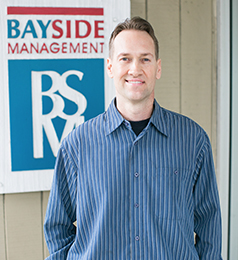 Dylan Motchar
Dylan Motchar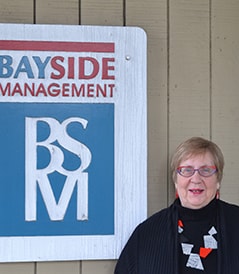 Barbara Boyd
Barbara Boyd Joanelle Russell
Joanelle Russell Mary Wiegmann
Mary Wiegmann Joseph DeNoia
Joseph DeNoia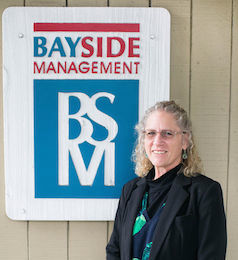 Beth Nagy
Beth Nagy Jasmin Peraza
Jasmin Peraza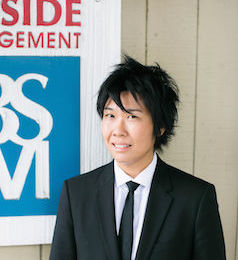 Carmin Wong
Carmin Wong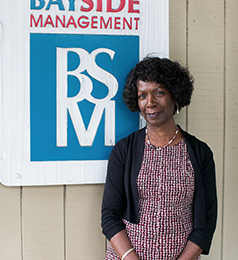 Pauline Smith
Pauline Smith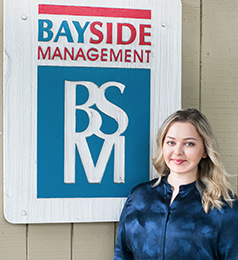 Victoria Taylor
Victoria Taylor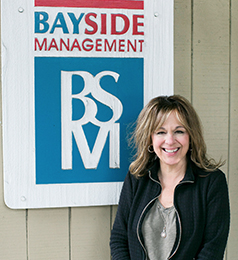 Yvette Perreca
Yvette Perreca Anthony Fregoso
Anthony Fregoso Anthony Thompson
Anthony Thompson Drew Reischl
Drew Reischl Nick Lange
Nick Lange Collette Counter
Collette Counter Justin Barton
Justin Barton